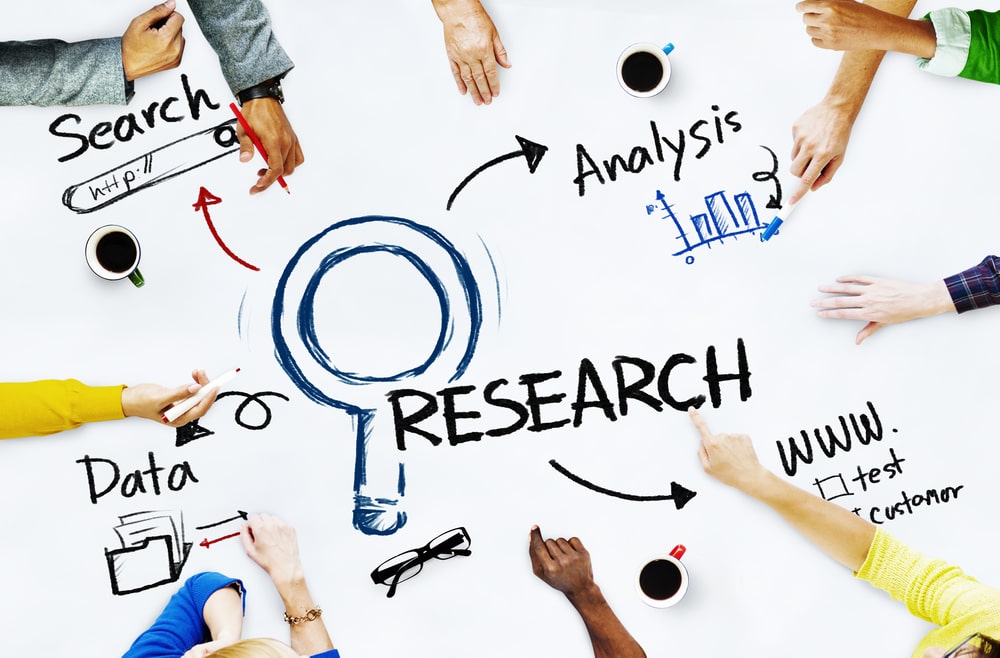
If you are nervous before the interviews, don’t worry. You’re not alone. Many people experience some form of anxiety during the interviewing process, and sometimes, a small amount of stress may aid you in performing better. But nerves from interviews are typically an even more severe issue that can hinder your ability to convey your worth and lead you to miss out on fantastic opportunities.
If you’re one of them, there are a few easy methods for How to Calm Your Nervousness During an Interview?
Table of Contents
Be prepared
Preparation is among the most effective ways to not feel anxious during an interview. Prepare your attire the night before, and allow sufficient time to travel so you don’t arrive at the interview feeling exhausted. Draw out your responses to commonly asked questions, but do not memorize the answers line-by-line.
If you’re not prepared, you may think that you’re forced to hunt to find information. Instead, consider the skills or traits you’d like to impress the interviewer. Practicing what you want to say beforehand will help you remember crucial details in times of anxiety.
Breathe

The usual thing is to breathe more rapidly and take fewer breaths when feeling anxious or nervous. The increased rate of breathing is an unconscious physiological reaction to actual or perceived dangers to a person’s survival. Though it may seem like such, the job interview does not present any risk to your physical health. Being in control of your breathing is one method to combat feelings of intense anxiety both before or during an interview.
Breathing profoundly is among the most effective methods to reduce anxiety and stress. Inhale deeply, breathe through your nose, and exhale through your mouth for several minutes before the interview to relax and let go. If you begin to get anxious during your consultation, stopping for a second to take a breath and then taking another will assist you in refocusing.
Drink green tea
If you’re looking for something that has caffeine in the day, opt for tea. There is evidence to back the assertion that black and green teas can lower stress levels and regulate cortisol which is the fight-or-flight hormone released by our bodies when we’re stressed (some are fine. However, too much can be harmful). Also, there is plenty of evidence from anecdotes that tea can have the effect of calming on nerves.
Meditate

Put your feet down, close your eyes, breathe, and focus on the present moment. A scientific and personal experience suggests that meditation has an effect of relaxation on nerves and aids in focusing. Focus is the key to passing that test. It is recommended to practice every day. Much more efficient than occasional practice, and you should do all you can.
Change Your Point Of View
A lot of people view interviews for jobs as interrogations. They believe that they shouldn’t commit a mistake in fear of being assessed. However, it’s essential to keep in mind that you’re also looking into the company to determine whether the job is suitable for you. According to the career advisor, the idea of thinking of an interview as a test can cause feelings of anxiety and fear. Instead, think of the interview as an exchange between two individuals who get to know one another. This could ease some of the anxiety and make you less nervous before as well during your interview.
Keep a positive attitude
If you go into the interview room with a depressing or negative mindset, you will likely be highly nervous and more likely than if you’re armed with an optimistic, confident mood. A confident attitude can make people feel more comfortable, even if you do not think that in the most profound sense. Positive non-verbal communication, such as smiling and adopting a non-defensive posture, with your legs straight and arms free of cross-braces, can make you less anxious and appear more relaxed and confident.
Training before the interview
Another excellent way to relax is to exercise. Exercise can not only help you gain a mental clarity that can keep you at the top of all the information required to be prepared for your interview, but you also release endorphins into your body to naturally ease your stress. Do you feel like a type of nervous person? Go to the gym first. If you’re a hive of energy, you can try your hand on the treadmill. Or swim a few laps. Do you need to take a step back and concentrate on your thoughts? Try yoga or meditation.
Research

Research the company, their products, and their culture thoroughly. Learn as much as you can about the company. Also, do some research on the people you are interviewing. The more you are aware of the business, and its employees are, the more confident you’ll feel.
Practice And Practice
Choose the main aspects you’d like to highlight during the interview. Then, make sure you practice to prove these key points. For instance, if your company is a fan of innovation and forward-looking, think of several points that showcase your skills in these areas. Then, practice telling them until you feel confident. It’s unlikely you’ll get to utilize every story you write, but you’ll surely be able to share some of the stories.
Take a Break and Give Yourself A Pep Talk
Make yourself believe that you’re going to be a success.
Remember that no matter what happens, you’re likely to make this interview enjoyable and give the best you can. There is a lot to take away from this experience, and remember that there’s nothing to lose in this situation. Be sure to put positive thoughts in your mind. Imagine your cute pet or the dog you cherish so much and do whatever you can to make you smile.
Set out your plans
It’s not a good idea to show up for an interview with a confused mental state. Be prepared. Select the clothes you’ll wear in the days before (and ensure that they’re ironed, clean and in good condition) and print different versions of your resume on the day before.
Be there before the time
Give yourself enough time to make it to the interview so that you’re not in the hands of traffic delays or public transport. Then, if you’re late, you can relax in your car and practice your points or take a walk to get your mind clear.
Reframe
Many people are nervous during interviews as they believe they’re being evaluated. It can be helpful to think about the interview within your head. It’s not a testing session, but a discussion that will help you and the company determine if it would be an appropriate match. Approaching the interview in this manner will help take some of the stress out of the discussion.
Humanize

Suppose you think of that interview as an exercise or way to test yourself. In that case, it’s easy to think of the interviewer as an interrogator rather than a human being with fears, concerns, and flaws similar to yours. Instead, try to believe that the candidate is a normal human being (and possible future coworker), and you’ll notice some of your anxieties go away.
Concentrate on something else
It’s normal to be distracted by your thoughts when feeling anxious. However, this could increase the stress. Focusing on something else, whether it’s a picture on the wall in the foyer or listening to the interviewer’s voice during the interview, can help you get away from the anxiety and ease anxiety.
Keep in mind the bigger picture.
Don’t enter interviews with an all-or-nothing mentality. This is only one thing to do, and if you fail, there are other applicants. Recognizing this can be a huge step towards alleviating stress.
Slowly speak
A lot of people speak quickly when they’re feeling anxious or stressed. But, even when you feel like this, speaking slowly can help you seem confident and calm. Do not worry about it if you hesitate. It’s okay to take time to think over your response before talking. A few minutes before responding, pondering an effective answer, and speaking slowly will help you give more precise responses.
Conclusion
Nervous before an interview is normal. However, If you’re among those people whose nervousness affects their performance in discussions, I’d suggest you test these seven strategies before an interview. I’m sure you’ll notice a significant impact.

If you are nervous before the interviews, don’t worry. You’re not alone. Many people experience some form of anxiety during the interviewing process, and sometimes, a small amount of stress may aid you in performing better. But nerves from interviews are typically an even more severe issue that can hinder your ability to convey your worth and lead you to miss out on fantastic opportunities.
If you’re one of them, there are a few easy methods for How to Calm Your Nervousness During an Interview?
Table of Contents
Be prepared
Preparation is among the most effective ways to not feel anxious during an interview. Prepare your attire the night before, and allow sufficient time to travel so you don’t arrive at the interview feeling exhausted. Draw out your responses to commonly asked questions, but do not memorize the answers line-by-line.
If you’re not prepared, you may think that you’re forced to hunt to find information. Instead, consider the skills or traits you’d like to impress the interviewer. Practicing what you want to say beforehand will help you remember crucial details in times of anxiety.
Breathe

The usual thing is to breathe more rapidly and take fewer breaths when feeling anxious or nervous. The increased rate of breathing is an unconscious physiological reaction to actual or perceived dangers to a person’s survival. Though it may seem like such, the job interview does not present any risk to your physical health. Being in control of your breathing is one method to combat feelings of intense anxiety both before or during an interview.
Breathing profoundly is among the most effective methods to reduce anxiety and stress. Inhale deeply, breathe through your nose, and exhale through your mouth for several minutes before the interview to relax and let go. If you begin to get anxious during your consultation, stopping for a second to take a breath and then taking another will assist you in refocusing.
Drink green tea
If you’re looking for something that has caffeine in the day, opt for tea. There is evidence to back the assertion that black and green teas can lower stress levels and regulate cortisol which is the fight-or-flight hormone released by our bodies when we’re stressed (some are fine. However, too much can be harmful). Also, there is plenty of evidence from anecdotes that tea can have the effect of calming on nerves.
Meditate

Put your feet down, close your eyes, breathe, and focus on the present moment. A scientific and personal experience suggests that meditation has an effect of relaxation on nerves and aids in focusing. Focus is the key to passing that test. It is recommended to practice every day. Much more efficient than occasional practice, and you should do all you can.
Change Your Point Of View
A lot of people view interviews for jobs as interrogations. They believe that they shouldn’t commit a mistake in fear of being assessed. However, it’s essential to keep in mind that you’re also looking into the company to determine whether the job is suitable for you. According to the career advisor, the idea of thinking of an interview as a test can cause feelings of anxiety and fear. Instead, think of the interview as an exchange between two individuals who get to know one another. This could ease some of the anxiety and make you less nervous before as well during your interview.
Keep a positive attitude
If you go into the interview room with a depressing or negative mindset, you will likely be highly nervous and more likely than if you’re armed with an optimistic, confident mood. A confident attitude can make people feel more comfortable, even if you do not think that in the most profound sense. Positive non-verbal communication, such as smiling and adopting a non-defensive posture, with your legs straight and arms free of cross-braces, can make you less anxious and appear more relaxed and confident.
Training before the interview
Another excellent way to relax is to exercise. Exercise can not only help you gain a mental clarity that can keep you at the top of all the information required to be prepared for your interview, but you also release endorphins into your body to naturally ease your stress. Do you feel like a type of nervous person? Go to the gym first. If you’re a hive of energy, you can try your hand on the treadmill. Or swim a few laps. Do you need to take a step back and concentrate on your thoughts? Try yoga or meditation.
Research

Research the company, their products, and their culture thoroughly. Learn as much as you can about the company. Also, do some research on the people you are interviewing. The more you are aware of the business, and its employees are, the more confident you’ll feel.
Practice And Practice
Choose the main aspects you’d like to highlight during the interview. Then, make sure you practice to prove these key points. For instance, if your company is a fan of innovation and forward-looking, think of several points that showcase your skills in these areas. Then, practice telling them until you feel confident. It’s unlikely you’ll get to utilize every story you write, but you’ll surely be able to share some of the stories.
Take a Break and Give Yourself A Pep Talk
Make yourself believe that you’re going to be a success.
Remember that no matter what happens, you’re likely to make this interview enjoyable and give the best you can. There is a lot to take away from this experience, and remember that there’s nothing to lose in this situation. Be sure to put positive thoughts in your mind. Imagine your cute pet or the dog you cherish so much and do whatever you can to make you smile.
Set out your plans
It’s not a good idea to show up for an interview with a confused mental state. Be prepared. Select the clothes you’ll wear in the days before (and ensure that they’re ironed, clean and in good condition) and print different versions of your resume on the day before.
Be there before the time
Give yourself enough time to make it to the interview so that you’re not in the hands of traffic delays or public transport. Then, if you’re late, you can relax in your car and practice your points or take a walk to get your mind clear.
Reframe
Many people are nervous during interviews as they believe they’re being evaluated. It can be helpful to think about the interview within your head. It’s not a testing session, but a discussion that will help you and the company determine if it would be an appropriate match. Approaching the interview in this manner will help take some of the stress out of the discussion.
Humanize

Suppose you think of that interview as an exercise or way to test yourself. In that case, it’s easy to think of the interviewer as an interrogator rather than a human being with fears, concerns, and flaws similar to yours. Instead, try to believe that the candidate is a normal human being (and possible future coworker), and you’ll notice some of your anxieties go away.
Concentrate on something else
It’s normal to be distracted by your thoughts when feeling anxious. However, this could increase the stress. Focusing on something else, whether it’s a picture on the wall in the foyer or listening to the interviewer’s voice during the interview, can help you get away from the anxiety and ease anxiety.
Keep in mind the bigger picture.
Don’t enter interviews with an all-or-nothing mentality. This is only one thing to do, and if you fail, there are other applicants. Recognizing this can be a huge step towards alleviating stress.
Slowly speak
A lot of people speak quickly when they’re feeling anxious or stressed. But, even when you feel like this, speaking slowly can help you seem confident and calm. Do not worry about it if you hesitate. It’s okay to take time to think over your response before talking. A few minutes before responding, pondering an effective answer, and speaking slowly will help you give more precise responses.
Conclusion
Nervous before an interview is normal. However, If you’re among those people whose nervousness affects their performance in discussions, I’d suggest you test these seven strategies before an interview. I’m sure you’ll notice a significant impact.
